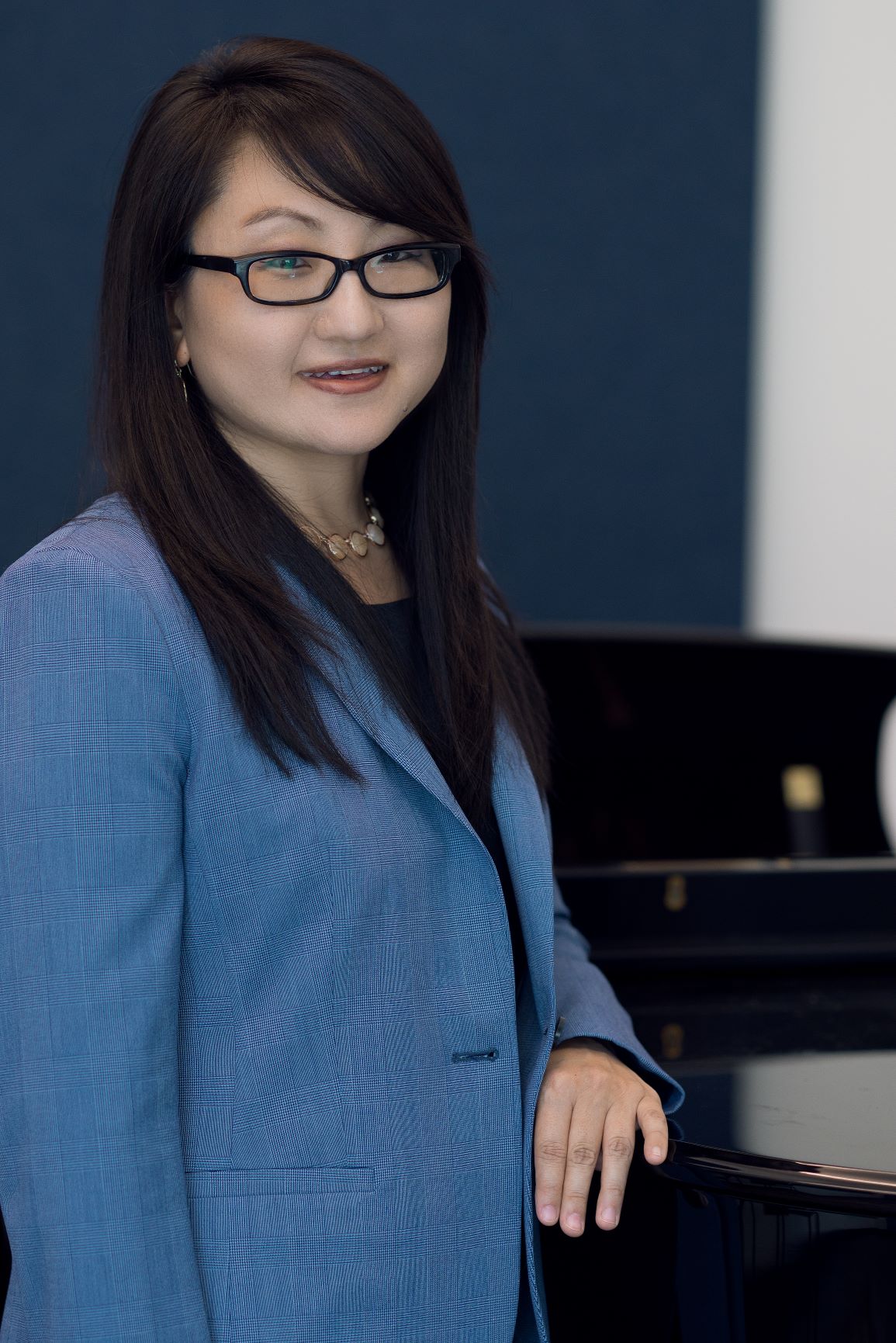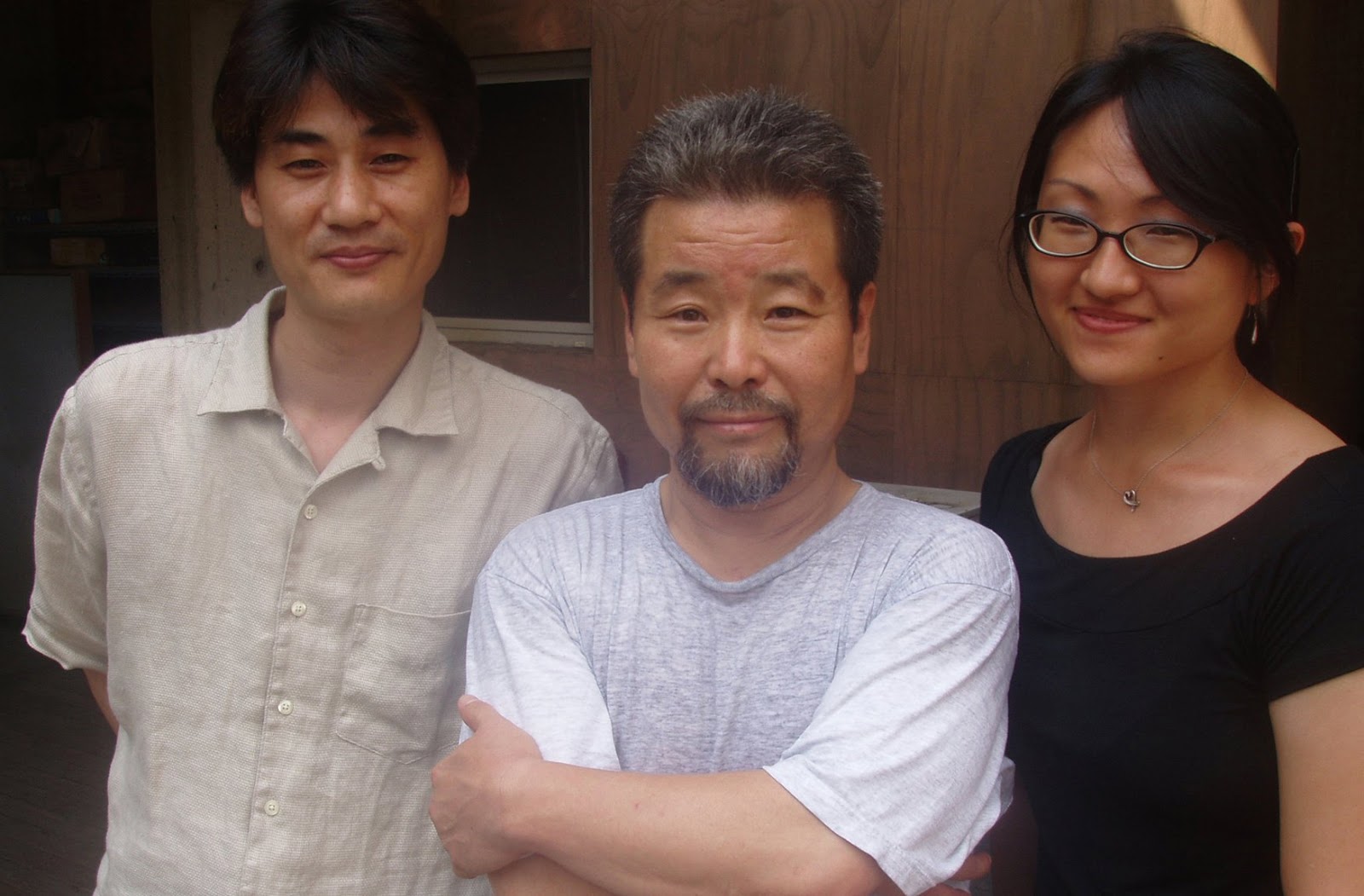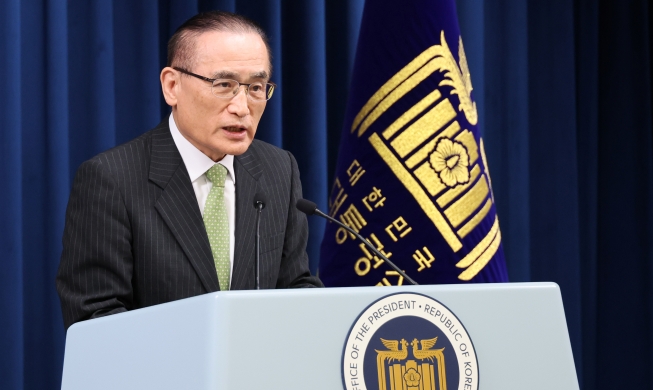- 한국어
- English
- 日本語
- 中文
- العربية
- Español
- Français
- Deutsch
- Pусский
- Tiếng Việt
- Indonesian
By Honorary Reporter Ishani Ghosh from U.S.
Photo = Stephen Wunrow, Katherine In-Young Lee
Katherine In-Young Lee is an associate professor of ethnomusicology at the University of California-Los Angeles (UCLA) with research interests including Korean music, East Asia, music and politics, sound studies, global circulation of form, ethnography, transnational adoption and Cold War politics.
Her book "Dynamic Korea and Rhythmic Form" last year received the Bela Bartok Prize for Outstanding Ethnomusicology from the ASCAP Foundation.
The following are excerpts from an email interview on Nov. 13 with Lee on her journey in ethnomusicology and Korean studies and insights on samulnori (traditional Korean percussion music).

Katherine In-Young Lee has written extensively about traditional Korean music including samulnori. (Nicholas Yoon)
What inspired you to pursue academic study of music?
I've always had a curiosity about the historical and cultural context of what I was performing or studying. t was natural for me to become curious about other cultures, and my courses in ethnomusicology were the most interesting among those in my undergraduate years.
Did your background as a Korean American influence you to focus on Korea?
Yes, I was raised in a predominately white suburb of metropolitan Detroit and had little opportunity to learn about Korean music while growing up. As I got older, I grew curious about the music, culture and history of a country that I was ethnically connected to but knew little about.
While a graduate student of ethnomusicology, did your perceptions of Korea change because you were approaching the country from an academic perspective?
Sure. Once you start to research a topic and approach it from many angles, you gain a more nuanced sense of that topic whether it's a historical event, a musical tradition or a political issue.
You worked in Korea for several years in arts administration after finishing your master's. How did the jobs you had strengthen your focus on Korea?
I was the overseas coordinator in 2003 for SamulNori Hanullim (non-profit group promoting the genre) under the art management agency Nanjang Cultures. My job was a liaison between Kim Duk Soo's SamulNori Hanullim and Western presenters and musicians. After working in arts administration, I had many freelance gigs as an English-language editor for Seoul Magazine and a Buddhist newspaper. Though I didn't plan it at the time, my time as a Nanjang staff member eventually led to my dissertation on the globalization of samulnori. And I still curate events and performances (of Korean music) even as a professor.

Katherine In-Young Lee poses for a group photo with Joo Jay-yeon (left), now president of Nanjang Cultures, and Kim Duk Soo, a samulnori pioneer and artistic director of SamulNori Hanullim, a troupe promoting and preserving the genre. (Stephen Wunrow)
How can the Korean government better promote samulnori worldwide?
One way the Korean government can further promote the genre abroad is to support younger samulnori musicians in sending them overseas to perform and holding percussion workshops for international samulnori groups. In the past, the Overseas Korea Foundation offered grants to purchase samulnori instruments. I definitely encourage the government to continue this.
Can samulnori reach the same heights or even surpass the global popularity of K-pop?
No, I don't think it will surpass K-pop, but that's OK because this isn't a competition. Perhaps global interest in K-pop will lead some fans to discover other Korean music genres like samulnori and pungmul (rural folk percussion music and dance).
What do you hope to accomplish in Korean studies?
I think this is already happening in Korean studies, but I want to see more scholars from other disciplines enter this expanding field and more attention paid to the nuances and politics of sound in the study of Korean pop culture. I hope to continue contributing to my field through my focus on the politics of sound in Korean culture.
enny0611@korea.kr
*This article is written by a Korea.net Honorary Reporter. Our group of Honorary Reporters are from all around the world, and they share with Korea.net their love and passion for all things Korean.
